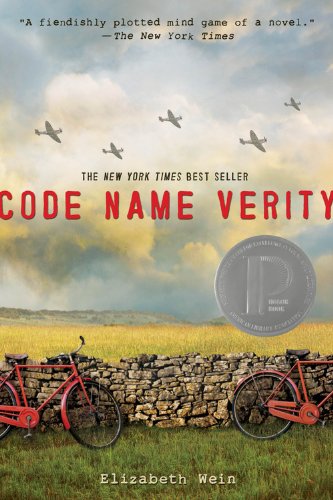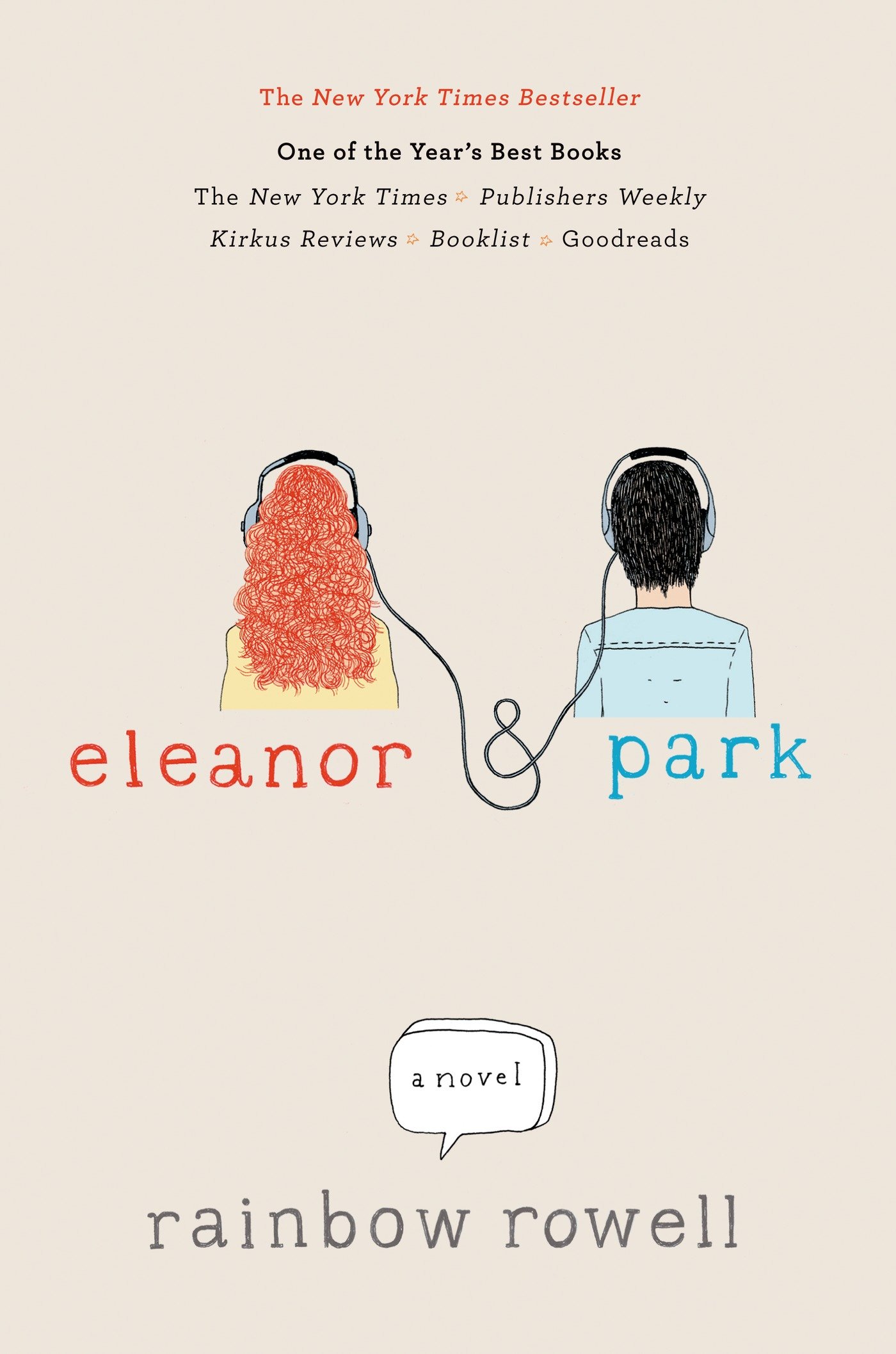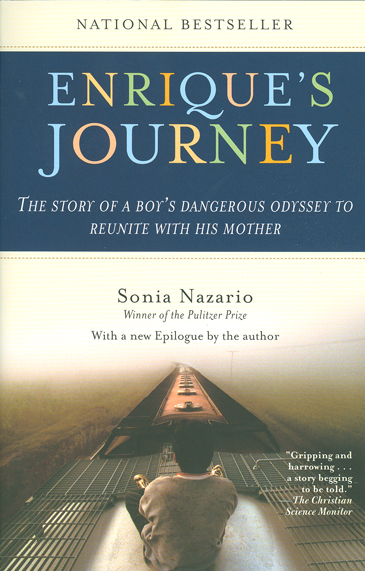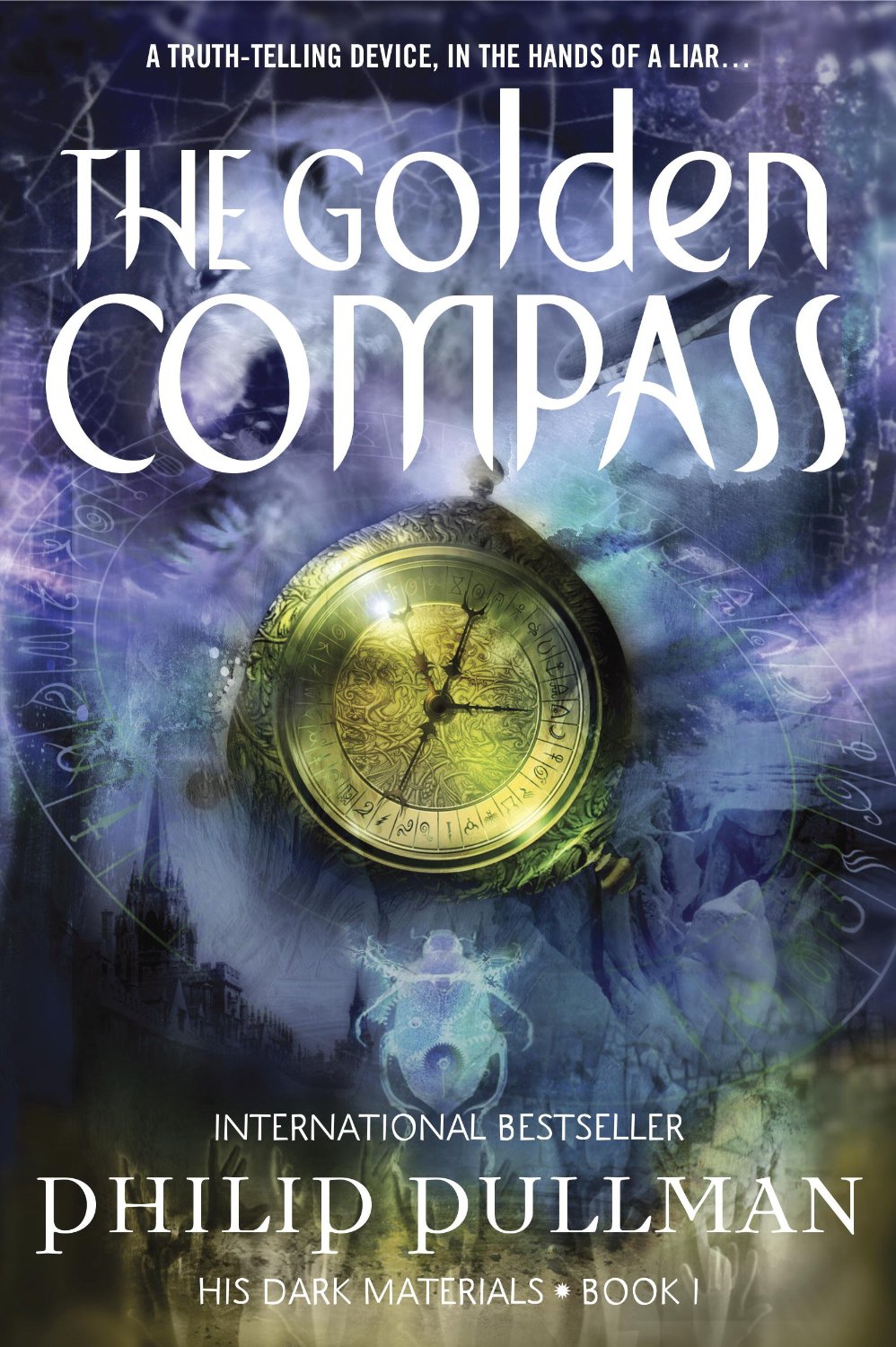 Code Name Verity
by Elizabeth Wein
reviewed by Hannah Musich
Code Name Verity
by Elizabeth Wein
reviewed by Hannah Musich
Code Name Verity by Elizabeth Wein is an intense novel written in the heat of conflict. Set in World War II, the main character, Verity, is captured by Nazi forces. While she is a spy held captive, in order to save herself she must describe various parts of the British army for the Nazi forces. At first she writes about the harsh realities of war, and the torture that will befall her if she fails to please the officers. She begins angry and hopeless; however, Verity begins to open to the readers or in this case Von Linden, a Nazi officer, about her life leading up to her capture. Her unexpected sense of humanity in such a dark and alien environment catches the officer off guard. As she describes her environment around her, and the terror which befalls her, she also begins to talk about her best friend, Maddie. Maddie we learn, is a British pilot who dropped her in Germany. The readers learn about Verity and Maddie’s unique partnership, unexpected friendship, and outstanding courage.
Code Name Verity allows the readers to find safety in Verity’s writing as she is faced with life and death every day. I would recommend this book to anyone who is looking for suspense novel that keeps them on the edge of their seat but can remind them of what home really means. This book is a demonstration of the power of humankind. In order to keep what little hope one has alive, one must always remember who they are, and where they came from; if not, they have nothing.
 Eleanor and Park
by Rainbow Rowell
reviewed by Katie Nuzzie
Eleanor and Park
by Rainbow Rowell
reviewed by Katie Nuzzie
Rainbow Rowell’s novel, Eleanor and Park, is an unforgettable contemporary fiction novel that expertly creates the story of two honest characters who seem as different as black and white when they first cross paths. Eleanor’s unique fashion sense and striking red hair provide a sharp contrast to Park’s introverted personality. However, a sarcastic sense of humor and a love of music and comic books brings both Eleanor and Park together as they come to terms with their feelings. The relatability of this novel makes it an excellent read and a reliable source for the complicated qualities of love and friendship.
The novel opens when Eleanor has moved to a new town and school, and cannot find a seat on the bus; leading Park to eventually offer the empty space next to him. This starts a unique cycle–he brings her comic books and playlists unlike anything she has at home, and she returns everything the next day without a scratch. Coming from a troubled family terrorized by the reign of a drunken stepdad, Eleanor has trouble opening up to Park, or anyone. However, as their relationship progresses, Rainbow Rowell demonstrates how much one person can change a life. This heartwarming novel explored both the awkward and beautiful sides of a teenage relationship that carried on to convey important themes, such as the challenges of growing up.
I really related to this story because none of the characters, not even the popular kids at the back of the bus, were perfect; Eleanor and Park always managed to bring out the beauty in the flawed. Rainbow Rowell did an excellent job of making her characters seem like people in real life, for example switching the narration of the novel from Eleanor to Park, and including humorous thoughts and descriptions that lifted the tension of unlucky situations. I also really enjoyed how the characters were intelligent and aware of their surroundings, and how the author described the world using non-superficial adjectives.
 Emma
by Jane Austen
reviewed by Tara Pugliese
Emma
by Jane Austen
reviewed by Tara Pugliese
Possibly Jane Austen’s most relatable masterpiece, Emma reads as a lighthearted “rom-com” detailing the female fascination with romance and their careful attention to social standings. Emma Woodhouse, the Queen Bee of her town (Highbury), enjoys good society, reading, and match-making. When her longtime governess and loyal companion leaves for married life (a relationship the young socialite orchestrated herself), Emma finds herself desperate for a friend and relief from boredom. Eventually, this independent heroine discovers the perfect project to occupy her days – a project which happens to parallel a typical teen soap opera (think Mean Girls); Emma decides to mentor the needy Harriet Smith.
Harriet, a local girl with no fortune or family, quickly reveres Emma and they soon embark on a convenient friendship beneficial to both parties: Harriet receives the chance to raise her social status and Emma gains an outlet for playing her favorite role as Cupid. Thus, what ensues results in a complex, romantic mess involving several very conflicted characters. These lovers include wise Mr. Knightley (a family friend of the Woodhouses), social climbing Mr. Elton (the neighborhood gold-digger), kind Robert Martin (a local farmer), perfect Jane Fairfax (whom you cannot help but despise), and infamous Frank Churchill (an adored ladies’ man).
With love comes other emotions often felt by single men and women searching for their true love: envy, hatred, jealousy, anxiety, hubris, and self-consciousness. Moreover, these universal feelings are accompanied by actions common for one with a crush: scheming, trickery, daydreaming, and abundant over planning. If any of these human experiences seem familiar, then you have noticed the genius of Emma; despite its time period set two centuries ago, the abiding novel still guarantees satisfying moments of relatability.
As with Jane Austen’s other novels, Emma utilizes artfully crafted, clever language to consistently engage the reader. Furthermore, Austen once again employs one of her most noteworthy literary devices – dramatic irony. As in 'Pride and Prejudice', this witty tactic keeps the reading cringing throughout, desperate for ignorant characters to finally notice the reality of their situations. Causing added frustration is the role dramatic irony plays in the novel’s many romantic relationships (several intertwined)... as if love was not confusing enough.
Additionally, Austen implements comedic relief to allow the reader an opportunity to laugh between the more substantive events. Essentially, if you find Kevin Hart humorous, take a look at Emma for an abundance of comical scenes certain to rival any stand-up special! This said, do not assume that 'Emma'’s humor qualifies the work as a mere “beach read”; Austen still provides a comprehensive interpretation of the complexity of human behavior, a feat she accomplishes flawlessly and one at the center of Emma.
 Enrique's Journey
by Sonia Nazario
reviewed by Megan Koehler
Enrique's Journey
by Sonia Nazario
reviewed by Megan Koehler
Enrique's Journey by Sonia Nazario is an eye-opening and heart wrenching non-fiction book about a boy trying to cross the border and find his mother in the United States. Enrique’s Journey takes place over a span of twenty-three years and tells the true story of a young boy named Enrique and his journey traveling from Honduras across Mexico and into the United States so he can see his mother again. His journey was far from easy, and he faced many difficulties along the way, including hunger, robbery, and drug problems.
On January 29, 1989, Enrique’s mother, Lourdes, left Enrique and his sister, Belky, with family members and departed poverty-stricken Honduras for the United States. Her plan was to get a job in the United States and send money back to her children so that they could go to school past the third grade and eventually move out of their thirty square foot shack. She promised her kids that she would be back in one year. Little did she know, life in the United States was not easy for immigrants and she would break that promise.
Enrique was seven when his mother left. As a teenager he had trouble at home without his mother. He started getting into trouble at school and getting into drugs at home. He missed his mother so terribly that he decided that he would set out alone and travel across Central America and Mexico to the United States. Eleven years after his mother left him, he left behind his sister and girlfriend in Honduras in search of his mother. He rode on top of trains through Mexico and Central America, in constant fear of falling off or being robbed and beaten by the gang members that control the trains. He finally makes it to the Rio Grande, but cannot get across without the help of a smuggler. He is penniless and does not have his mother’s phone number. Without her help, he has no chance of ever getting across the river and seeing her again.
Enrique’s Journey is a tragic tale of a young boy’s journey to find his mother. It is full of suspense and keeps you on the edge of your seat the entire time. I would recommend this book to anyone who is interested in the issue of illegal immigrants in the United States, and to anyone who enjoys stories about adventure and heartbreak. Will Enrique ever cross the Rio Grande and reach his mother in the United States? Read Enrique’s Journey to find out.
 The Golden Compass
by Philip Pullman
reviewed by Sophie Johnson
The Golden Compass
by Philip Pullman
reviewed by Sophie Johnson
The Golden Compass by Philip Pullman is a fantasy novel that begins with the image of magic “dust” and a parallel universe. Lyra is a young girl who lives in Oxford college surrounded by very intelligent older people. In the novel each person is connected to a “daemon” which is an animal that is apart of them. This animal shapeshifts into different animals whenever it wants. But when a child becomes an adult, they have a fixed daemon. Lyra’s daemon name is Pantalaimon and they are obviously very close friends. One day Lyra and Pan (Pantalaimon) sneak into a special room in the college and listen in on a meeting with Lyra’s uncle, Lord Asriel, the Master of the college and some other smart men. Lord Asriel brings up the subject of dust, severed children, and the northern lights. He then says he is leaving for the North.
Lyra notices that many children have been kidnapped recently by this group known as “the Gobblers”. Soon Lyra’s best friend Roger is taken by the Gobblers and she starts the task of finding out what they are doing to the children. But soon after she meets Mrs. Coulter who she quickly becomes fast friends with and then decides to move in with her. Before she leaves she is given an alethiometer which is a golden compass. But soon after living with her Lyra runs away fearing her being connected with the Gobblers. She joins the Gyptians, a a group of people who also want to save the children. Along the way they find out the children are being detached or separated from their demons, causing their deaths. With the help of the Gyptians, a friendly polar bear named Iorek, and others, the party travels to the north to save the kidnapped children.
Philip Pullman writes a lot about power and religion through the story of Lyra. The subject of the daemon is very crucial because as I read in an article he uses the demon's companionship with each person to symbolize the relationship that christians have with God. Pullman touches on the subject of “dust” that is thought to be sin, and the source of death and all evil. All the adults in the story want to destroy it because it causes problems. He also touches on the matter of original sin, that all humans sin and make mistakes. Philip writes so incredibly because there is always an underlying message throughout the story.
 Code Name Verity
Code Name Verity


